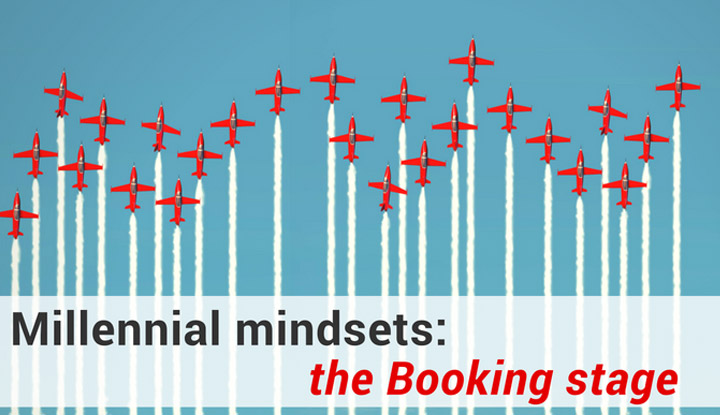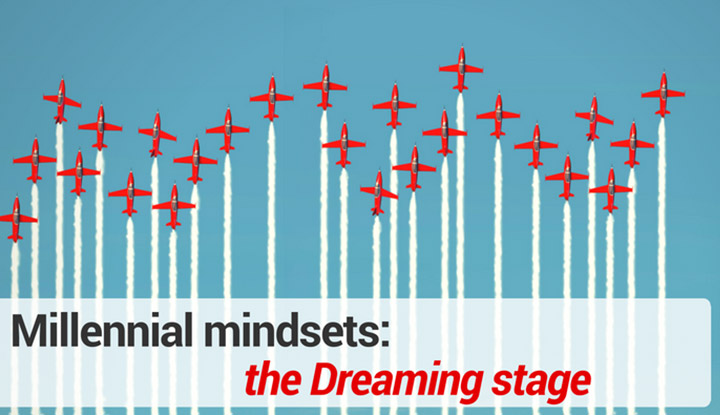This is the fourth segment in our Millennial Mindsets series from the Sabre New Graduate Leadership Program (NGLP). To understand the needs of this group we conducted the Millennial Travel Trends 2016 survey of 400 millennial North Americans. Here we explore our findings in a series inspired by Google’s Five Stages of Travel — Dreaming, Planning, Booking, Experiencing, and Sharing.
It’s about the experience, silly
There’s a classic military analogy that warns of the dangers of over complications: “Keep it simple, silly.” Known as the KISS principle, it offers a solid bedrock for many initiatives. When it comes to a traveler’s journey, the experience is clearly what holds the highest impact. The experiencing phase of a trip is everything that happens from when you leave your front door to when you return.
And technology is an essential piece of nearly every part of the experiencing stage. For example, before arriving at the airport, I’ve already checked-in for my flight on my phone. I’m happy to just have the QR code on my phone instead of a paper ticket.
Mobile is the fastest growing check-in channel and is expected to be 20% by the end 2016, finds @Hipmunk
It was worth it to me to expedite my journey through security, so I applied for TSA-precheck and global entry. As
Hipmunk’s 2015 study found, 31 percent of Millennials use the TSA Pre-Check lanes at the airport. Overall, we are more likely to use TSA pre-check than older generations. This reflects a willingness to go the extra mile or pay a little more to remove friction points that make travel frustrating.
WiFi threads through the experiencing stage
Before my recent trip to Europe, I used WiFi to “check into” DFW on Facebook to let all my friends know I was off to Glasgow. This information might not be the safest to share.
Sure, it’s not advisable to share your location, but we’re doing it. 71% of Sabre’s millennial survey participants have used geo-tagging while traveling.
Geo-tagging includes checking into a location on Facebook, tagging your location on Instagram, and using geo-filters on Snapchat. Effectively, this lets anyone who can see those updates know where you are in the world
It’s been said that checking in to your location online has become like a postcard — a way to inform others of your travel and brag a little. Travel suppliers and destinations can certainly take advantage of this love of social sharing!
One thing to note: Millennials traveling for business are
four times more likely to pay for WiFi on a flight! With our mindset of
selective splurging, we probably won’t pay for WiFi on our leisure trips. However, when it’s on the company dime, it’s a different story. We’re actually four times as likely to purchase that service while traveling for work!
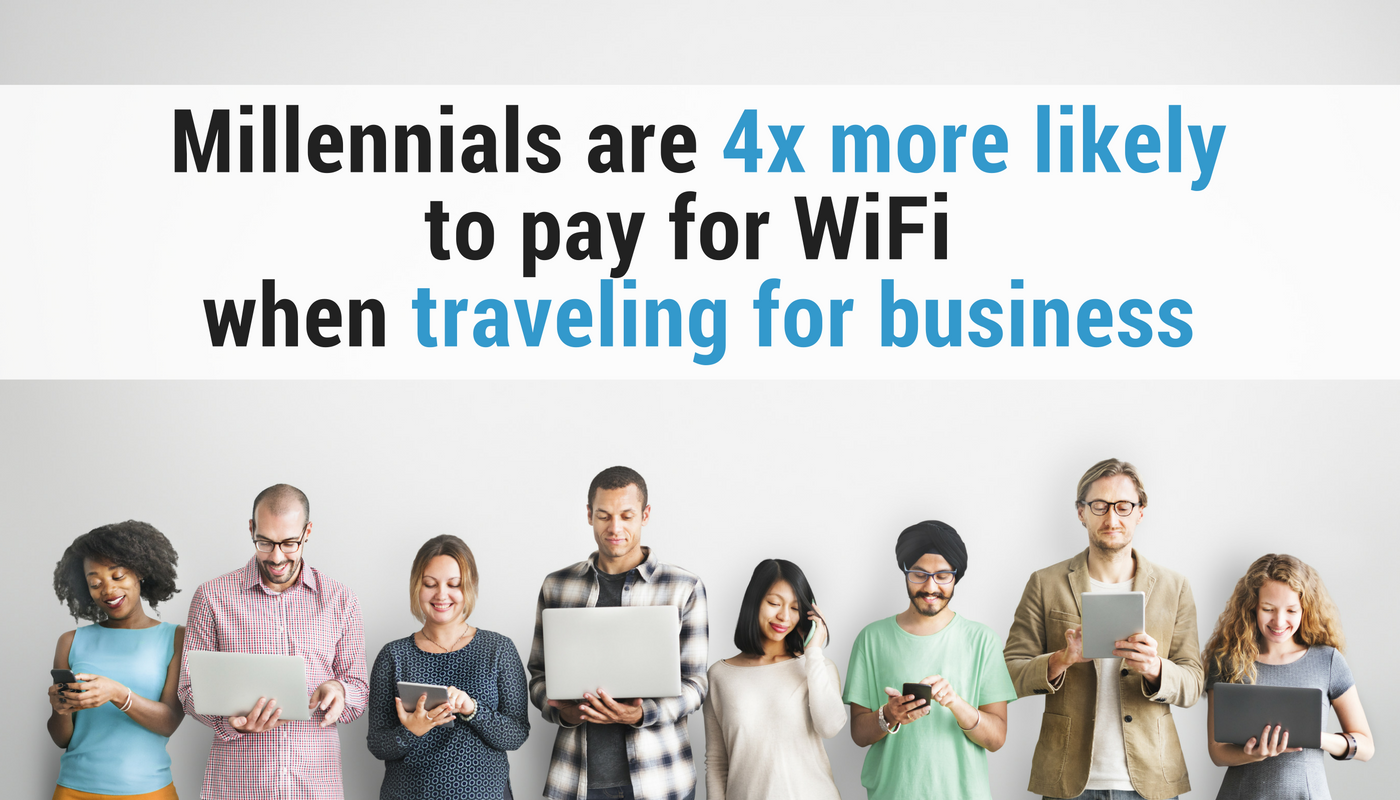
How sharing impacts the travel experience
When we arrive in our destination, where are we staying? With all the buzz about the rise of Airbnb, we decided to ask our survey participants if they had actually staying in an Airbnb before. 45% of them had, but most had only done so once or twice. So why are millennials choosing Airbnb over more traditional accommodations? We want to feeling like we are living like a local and experiencing the destination in an authentic way. If people like staying in an airBnB for leisure travel,
studies show that preference extends to business travel too.
However, for all the media hype, Airbnb is only taking o
ne to two percent of traditional hotel demand, a number that is even smaller than the hostel market. So that number isn’t too scary, but their revenue growth last year was more than four times traditional hotels.
The other big name in the sharing economy is Uber. Uber is
the most expensed ground transportation in US business travel — double that of taxis, and bigger than rental cars too.
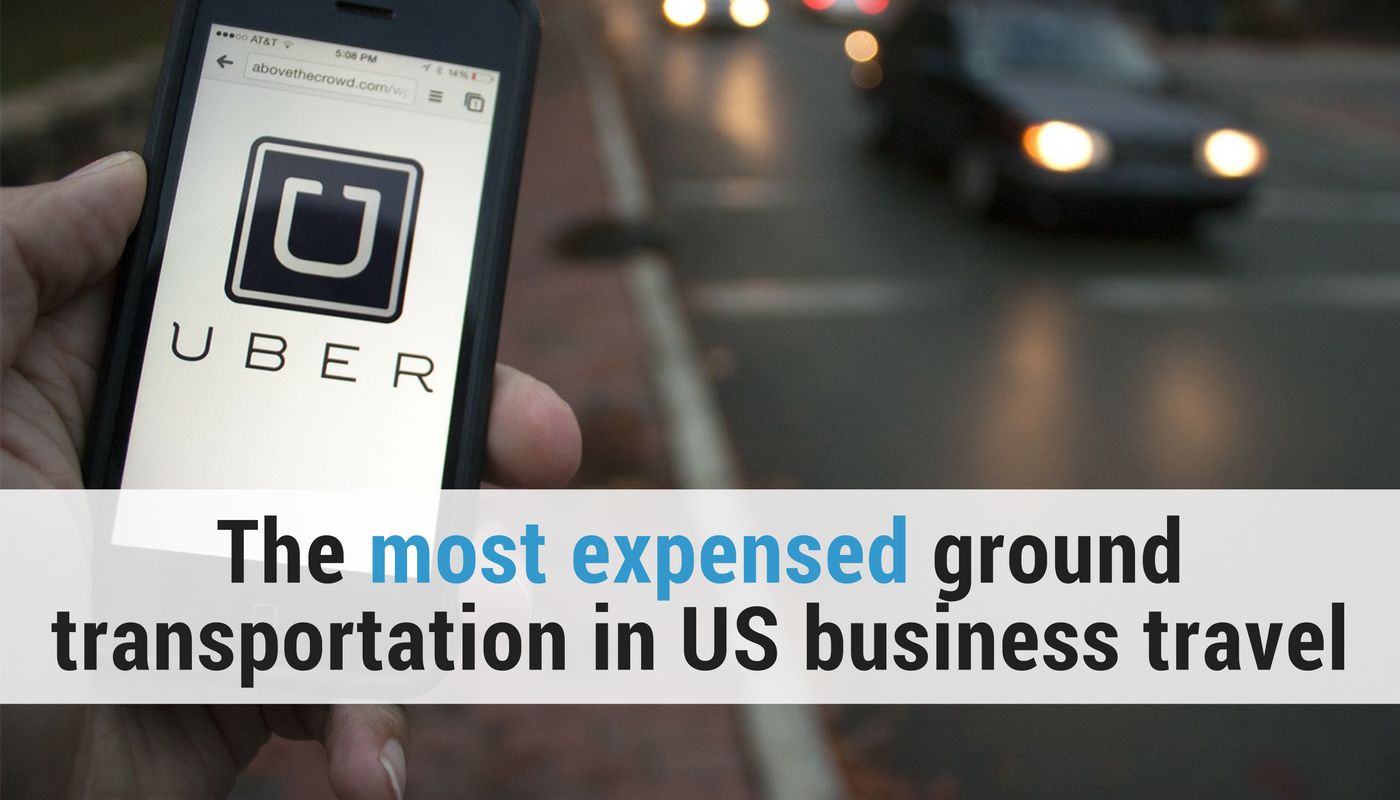
And sharing is only going to get bigger: According to
Juniper Research the sharing economy will be worth more than $20 billion per year by 2020!
Bleisure brings millennials to stay longer – and eat more!
We have a strong desire to see the world and even view obligatory business travel as an opportunity rather than a burden due to the adventures that can be had along the way. Even when we don’t have the opportunity to extend our business trip into “
bleisure,” we will try to explore the city through our meals and evenings. Maybe that’s asking the uber driver to take the scenic route back to the hotel, or going for a run around the block in the morning.
We often like to extend work trips over the weekend so that we can explore food in the destination. It’s quite important to many millennials to experience the destination through food!
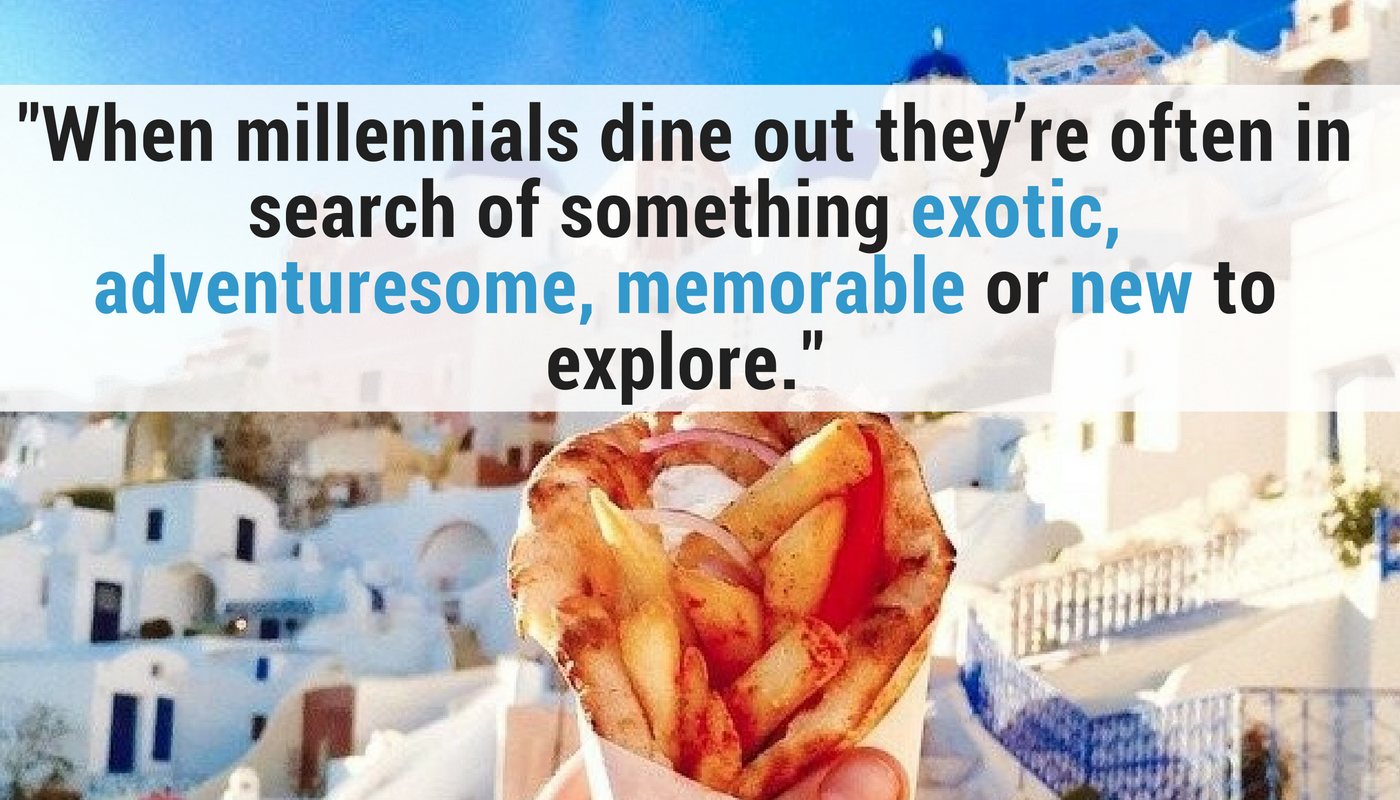
On my trip to Glasgow a few months ago, my friend and I also visited Dublin, Ireland. My friend looked up restaurant ratings and reviews ahead of time, because we wanted to make each meal a deliciously unforgettable experience. We only had 36 hours in Dublin, and every place we ate had at least three stickers in the window touting its ratings.
And yes, I did take pictures of my food!

 And sharing is only going to get bigger: According to Juniper Research the sharing economy will be worth more than $20 billion per year by 2020!
And sharing is only going to get bigger: According to Juniper Research the sharing economy will be worth more than $20 billion per year by 2020!
 On my trip to Glasgow a few months ago, my friend and I also visited Dublin, Ireland. My friend looked up restaurant ratings and reviews ahead of time, because we wanted to make each meal a deliciously unforgettable experience. We only had 36 hours in Dublin, and every place we ate had at least three stickers in the window touting its ratings.
And yes, I did take pictures of my food!
On my trip to Glasgow a few months ago, my friend and I also visited Dublin, Ireland. My friend looked up restaurant ratings and reviews ahead of time, because we wanted to make each meal a deliciously unforgettable experience. We only had 36 hours in Dublin, and every place we ate had at least three stickers in the window touting its ratings.
And yes, I did take pictures of my food!
